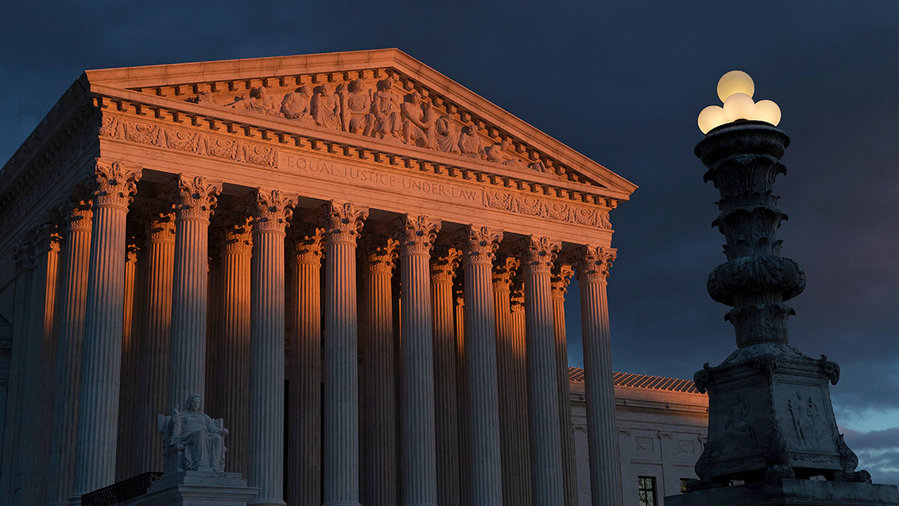
The U.S. Supreme Court building in Washington, U.S.. /AP
The U.S. Supreme Court on Tuesday will hear arguments in a major showdown over presidential powers arising from President Donald Trump's attempts to prevent Democratic-led congressional committees and a New York City prosecutor from getting his financial records.
In the three cases being argued on Tuesday, Trump has sought to prevent enforcement of subpoenas issued to his long-time accounting firm Mazars LLP and two banks, Deutsche Bank and Capital One, for financial records including tax returns. Lower courts in Washington and New York ruled against Trump in all three cases.
Two of the Trump cases - to be heard together - concern his effort to block enforcement of subpoenas by House of Representatives committees seeking his financial records from Mazars and the two banks.
The House committees have said they are seeking the material as part of investigations into potential money laundering by banks and into whether Trump inflated and deflated certain assets on financial statements - as his former personal lawyer has said - in part to reduce his real estate taxes.
The other case concerns a subpoena issued to Mazars for similar information, including tax returns, as part of a grand jury investigation into Trump being conducted by the office of Manhattan District Attorney Cyrus Vance, a Democrat.
The New York criminal investigation was spurred by disclosures of hush-money payments by Trump to two women - pornographic film actress Stormy Daniels and former Playboy model Karen McDougal - who said they had past sexual relationships with him.
Rulings are likely within weeks, with Trump seeking re-election on November 3 amid the coronavirus pandemic. The cases will be heard in two separate arguments by teleconference, a format adopted during the pandemic.
Trump's lawyers want the Supreme Court to endorse their expansive view of presidential powers that would severely limit the ability of Congress to conduct oversight of presidents and of prosecutors to investigate them.
"These cases are of tremendous concern not just for what happens with this president, but what happens with the balance of power and the separation of powers," says Michael Gerhardt, a constitutional law professor at the University of North Carolina School of Law in Chapel Hill.
Presidential immunity?
Trump's private lawyers have adopted a sweeping view of presidential immunity in all three of the cases the court will hear.
They repeatedly remind the court of the past views of Justice Brett Kavanaugh, quoting a 2009 law review article written by Trump's most recent addition to the Supreme Court: "A President who is concerned about an ongoing criminal investigation is almost inevitably going to do a worse job as President."
Trump has claimed many times about his unilateral authority as president.
He once argued that anything less than complete immunity from all criminal processes could hinder his performance of his duties and "stigmatizes the President in ways that will frustrate his ability to effectively represent the United States in both domestic and foreign affairs."
Landmark cases in history
The cases are among the most consequential in years on the parameters of presidential powers. The high court in some past landmark cases has ruled against presidents.
In 1997, it unanimously decided that sitting presidents could be sued for conduct outside of official duties, ruling against President Bill Clinton's bid to delay a sexual harassment lawsuit. In 1974, it unanimously ruled that President Richard Nixon must comply with a court's subpoena for tape recordings in the Watergate scandal.
Trump has won key victories at the high court, including ones over his hardline immigration policies, but lost a big case a year ago regarding the U.S. census.
 简体中文
简体中文



